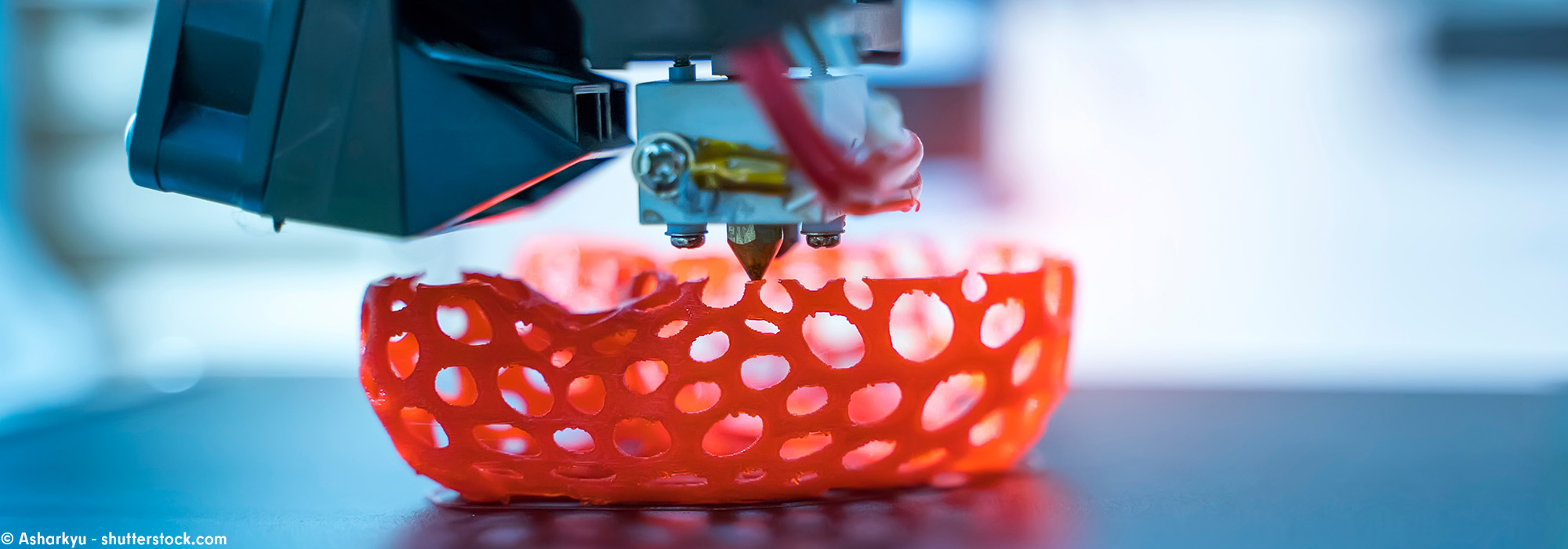
High-tech innovations "made in Berlin"
19. April 2023 - 14 Millionen euros: That is how much the Berlin Senate is currently investing in 13 top projects dealing with additive manufacturing (AM) - professional 3D printing. The overarching goal is to accelerate Berlin's development into the 3D printing capital of Europe by 2030. Berlin is already home to numerous companies and research institutes from Germany and abroad that focus on the development and application of this key technology, and international interest in Berlin's AM scene continues to grow. As an important interface between the digital economy and industry, technology benefits greatly from Berlin's heterogeneous start-up landscape. The 13 research and development projects that are currently being funded are primarily concerned with the topics of additive manufacturing for space, for construction and lightweight construction, and for personalised medical technology. These are all future-relevant fields of application that also touch on the areas of sustainability and health and thus affect every individual in society.
The projects with a total of twenty-nine regional partners from universities, research institutions and companies will run until the end of 2025 and create high-tech innovations "made in Berlin". They are bundled and managed under the new umbrella brand AMBER (Additive Manufacturing Berlin Brandenburg), the regional 3D printing network coordinated by Berlin Partner, which bundles the competences in the capital region with its platform character and uses existing synergies.
But what concrete added value do these innovations from the AM sector offer?
"perKunSt"for example, a joint project of Fraunhofer IPK, InnoRa GmbH and Organical CAD/Cam GmbH, aims to develop biodegradable, personalised plastic stents that should cause fewer complications. These are often used for coronary heart disease, which affects almost six million people in Germany alone.
Also from the field of medical technology comes “ProAstraDental”, a joint project of Trinckle and the TU Berlin, which is developing new types of dental prosthesis implants to be manufactured in a highly automated production chain. The advantage of this design is that the patient could have a suitable implant placed immediately after tooth removal.
The Bundesanstalt für Materialforschung und -prüfung (BAM) is working together with TU Berlin and XERION on “MikroG”. The aim is to enable the additive manufacturing of metallic and ceramic components in a flexible, decentralised and mobile way. With the help of this compact technology, components can be manufactured quicker and more independently, for example on ships, in crisis regions or in space.
In addition to topics for space applications and medical technology, the focus is also on lightweight construction. For example, the companies FKS Maschinenbau and Photon together with the Berliner Hochschule für Technik (BHT) and the TU Berlin are developing additively manufactured lightweight stiffening structures for use in rail vehicles in the "Addgleis" project. The basis of these structures is the development of a production chain consisting of three promising AM processes that enable the manufacture of weight-optimised components with topology-optimised designs that significantly reduce energy consumption in both passenger and freight transport.
This year's stand at the Hannover Messe (Hall 16 Digital Ecosystems, Stand D16 ) from 17 to 21 April is aimed at establishing Berlin as the top address for additive manufacturing in Europe. Seven companies from the region will be there with interactive exhibits to impressively demonstrate their competencies and innovations that are "made in Berlin":
